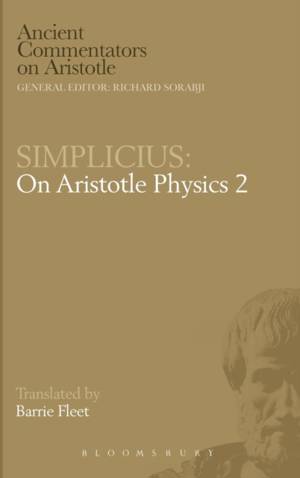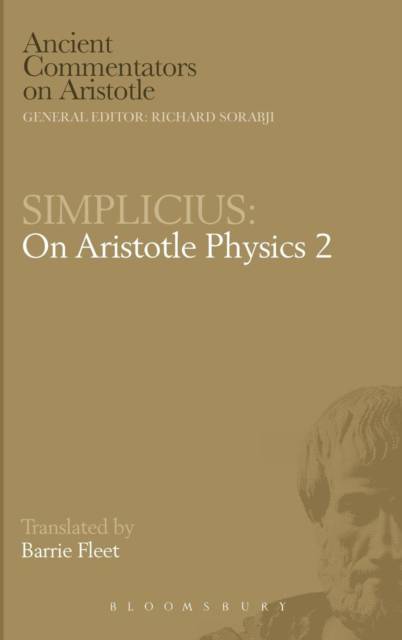
- Afhalen na 1 uur in een winkel met voorraad
- Gratis thuislevering in België vanaf € 30
- Ruim aanbod met 7 miljoen producten
- Afhalen na 1 uur in een winkel met voorraad
- Gratis thuislevering in België vanaf € 30
- Ruim aanbod met 7 miljoen producten
Zoeken
Omschrijving
Book 2 of the Physics is arguably the best introduction to Aristotle's ideas, as well as being the most interesting and representative book in the whole of his corpus. It defines nature and distinguishes natural science from mathematics. It introduces the seminal idea of four causes, or four modes of explanation. It defines chance, but rejects a theory of chance and natural selection in favour of purpose in nature.
Simplicius, writing in the sixth century AD, adds his own considerable contribution to this work. Seeing Aristotle's God as a Creator, he discusses how nature relates to soul, adds Stoic and Neoplatonist causes to Aristotle's list of four, and questions the likeness of cause to effect. He discusses missing a great evil or a great good by a hairsbreadth and considers whether animals act from reason or natural instinct. He also preserves a Posidonian discussion of mathematical astronomy.
Simplicius, writing in the sixth century AD, adds his own considerable contribution to this work. Seeing Aristotle's God as a Creator, he discusses how nature relates to soul, adds Stoic and Neoplatonist causes to Aristotle's list of four, and questions the likeness of cause to effect. He discusses missing a great evil or a great good by a hairsbreadth and considers whether animals act from reason or natural instinct. He also preserves a Posidonian discussion of mathematical astronomy.
Specificaties
Betrokkenen
- Auteur(s):
- Vertaler(s):
- Uitgeverij:
Inhoud
- Aantal bladzijden:
- 226
- Taal:
- Engels
- Reeks:
Eigenschappen
- Productcode (EAN):
- 9780715627327
- Verschijningsdatum:
- 20/02/1997
- Uitvoering:
- Hardcover
- Formaat:
- Genaaid
- Afmetingen:
- 156 mm x 234 mm
- Gewicht:
- 494 g

Alleen bij Standaard Boekhandel
+ 279 punten op je klantenkaart van Standaard Boekhandel
Beoordelingen
We publiceren alleen reviews die voldoen aan de voorwaarden voor reviews. Bekijk onze voorwaarden voor reviews.











